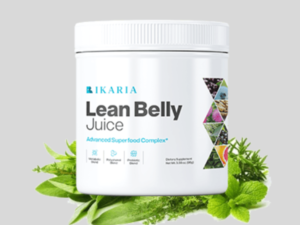In today’s fast-paced world, obesity has emerged as a significant public health challenge. The rise in sedentary lifestyles and the consumption of high-calorie, low-nutrient foods contribute to weight gain and associated health risks. While the detrimental impacts of obesity on cardiovascular health, diabetes, and joint problems are well-known, its connection to cancer is less frequently discussed. This article investigates the link between obesity and cancer, focusing on how weight loss can considerably lower cancer risk and enhance general health.
The Link Between Obesity and Cancer
Obesity is a complex condition defined by excess body fat. Chronic low-level inflammation often accompanies obesity, potentially damaging DNA and increasing cancer risk. Hormonal imbalances induced by excess body fat, particularly affecting estrogen, insulin, and insulin-like growth factors, can promote the growth and spread of cancer cells. Additionally, obesity can impair the immune system’s ability to detect and eliminate cancer cells. Adipose tissue produces adipokines that stimulate cell proliferation and inhibit cell death, contributing to cancer development.
Types of Cancer Associated with Obesity
The most common obesity-related cancers include
- Breast Cancer: Higher estrogen levels due to excess body fat increase the risk, especially in postmenopausal women.
- Colorectal Cancer: Obesity correlates with elevated insulin levels and chronic inflammation, both contributing to the disease.

- Endometrial Cancer: Obese women face a significantly heightened risk due to increased estrogen levels.
- Kidney Cancer: Changes in hormones and inflammatory markers driven by excess weight elevate the risk.
- Pancreatic cancer: Elevated insulin and insulin-like growth factors in obese people promote the growth of cancer cells.
Benefits of Weight Loss in Reducing Cancer Risk
- Impact on Hormonal Levels
- Weight loss helps normalize hormone levels, reducing the risk of hormone-sensitive cancers such as breast and endometrial cancer in postmenopausal women. It also decreases insulin resistance, lowering the risk of cancers influenced by high insulin levels, like colorectal and pancreatic cancers.
- Reduction in Chronic Inflammation
- Weight loss reduces chronic inflammation, a pivotal factor in cancer development. By decreasing inflammatory markers, weight loss improves immune function, enhancing the body’s ability to detect and combat cancer cells.
- Improved Immune Function
- Achieving a healthier weight enhances overall immune system functionality, crucial for cancer prevention and general health.
- Enhanced Quality of Life
- Beyond reducing cancer risk, weight loss improves mobility, reduces joint pain, enhances cardiovascular health, and boosts energy levels, contributing to a more active and fulfilling life.
Strategies for Effective Weight Loss
- Balanced Diet: Adopting a balanced diet is essential for weight loss and overall health. Eating smaller, frequent meals helps regulate hunger and prevents overeating.
- Reducing Sugar and Refined Carbs: Limiting intake of sugary beverages, sweets, and refined carbohydrates aids in weight management and prevents metabolic issues.
- Regular Physical Activity: Exercise is fundamental for weight loss and overall well-being. Activities such as walking, jogging, swimming, cycling, and resistance training help burn calories, build muscle, and boost metabolism.
- Stress Management: Effective stress management strategies, such as adequate sleep and relaxation techniques, are crucial for preventing emotional eating and maintaining a healthy weight.
- Medical Interventions: In some cases, medical interventions may be necessary to achieve significant weight loss.
Impact of public health efforts
- Community Programs
Public health initiatives play a vital role in combating obesity and reducing cancer risk on a broader scale. Community-based programs promoting healthy eating, physical activity, and weight management can have a profound impact.
- School Nutrition Programs
Implementing healthier school meal options and providing nutrition education for children is critical in establishing lifelong healthy habits.
- Public Awareness Campaigns
Raising awareness about obesity-related health risks and providing information on achieving and maintaining a healthy weight are essential public health measures.
- Policy Interventions
Government policies, such as taxation on sugary beverages to reduce consumption and fund public health programs, can significantly contribute to obesity prevention and weight management.
Introducing Ikaria Lean Belly Juice for weight loss and Obesity management
Considering all the above factors here Ikaria Lean Belly Juice is a special blend that provides natural health-boosting nutrients while protecting the body from the pollutants and pollution of today’s world. These nutrients help to boost your metabolism. Ikaria Lean Belly Juice also boosts liver function, strengthening the body’s most powerful fat-burning organ. and aiding in Obesity management and weight loss.

Ingredients of Ikaria Lean Belly Juice
Ikaria Lean Belly Juice contains a potent blend of ancient nutrients. Each scoop includes carefully selected ingredients from the purest sources, providing powerful synergistic benefits: a proprietary blend of 8 antioxidants.

– Fucoxanthin: This marine pigment from edible seaweeds, used in Asia for millennia, stimulates metabolism and converts fat cells into energy.
– Panax Ginseng: Prized in East Asia for thousands of years, it supports gut flora, influences calorie consumption, shrinks fat cells, increases metabolism, and aids weight loss.
– Bioperine: Derived from black pepper and used in traditional medicine for centuries, it promotes thermogenesis, reduces fat cell formation, boosts energy expenditure, and supports weight loss.
– Resveratrol: From traditional Chinese and Japanese medicine, it increases muscle mass, reduces fat, and supports cellular and heart health.
– EGCG: Found in green tea and used in traditional Chinese medicine since 600 AD, it supports heart health, promotes fat oxidation, burns excess calories, and enhances vitality.
– Taraxacum: Supports liver health and digestion, combating fat accumulation.
– Citrus Pectin: Improves digestion, reduces appetite, and limits food intake for faster weight loss.
– Milk Thistle: Known for silymarin, which breaks down visceral fat deposits and supports liver function.
How to Use
Dosage: The recommended dose is typically found on the product label—usually one scoop of Ikaria Lean Belly Juice mixed with water or a preferred beverage daily.
Timing: Morning intake is suggested for sustained energy throughout the day, although it can be taken at any convenient time.
Consistency: To achieve optimal results, it’s crucial to consistently follow the recommended dosage. Skipping days or not adhering to the regimen may affect outcomes.
Conclusion
Ikaria Lean Belly Juice is marketed as a weight loss aid, promoting fat loss, boosting metabolism, and enhancing overall health. Weight management is not merely about appearance or confidence; it also reduces the risk of life-threatening diseases like cancer. Taking control of your weight is a significant step toward a healthier future, offering benefits beyond physical appearance. Making informed choices and seeking support can significantly lower cancer risk and improve quality of life.
